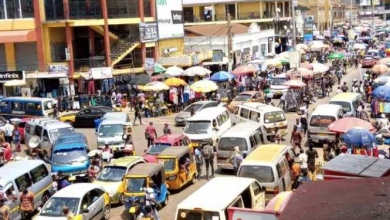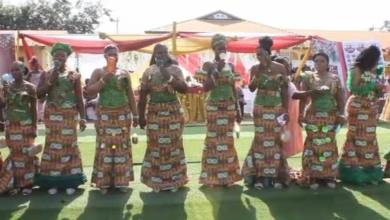Government to Revamp Mining Policy for Better Accountability

- The government plans to overhaul mining policy with a bottom-up licensing approach
- Minister Buah emphasizes reforms at the Minerals Commission for greater accountability
- The Ghana Geological Survey Authority will also be revamped to improve mineral investigations
The government is planning to overhaul the mining policy and adopt a bottom-up approach to the licensing system to ensure greater accountability and integrity in the sector.
Emmanuel Armah-Kofi Buah, the Minister of Lands and Natural Resources, announced that significant reforms will soon be implemented at the Minerals Commission, in line with President John Mahama’s vision to reset the country’s economy.
Mr. Buah made the announcement during a staff durbar at the Minerals Commission headquarters in Accra on Monday.
He issued a stern warning, stating, “If you’re not ready to align with the government’s policy and hinder our progress, you should start walking out now. Nobody will be allowed to obstruct our agenda for resetting the economy.”
He added, “We’re not looking to target anyone, but if you stand in our way, we will remove you.”
The Minister emphasized that the government had been entrusted with a mandate by the people to reset the economy toward growth and prosperity, and any barriers to that goal would not be tolerated. His meeting with the Commission’s staff was part of his effort to understand their operations and share his objectives with them.
“The Minerals Commission plays a vital role in the country’s economy, and we must all work together to ensure the success of the reset,” he said. “I will work with staff who are committed, have integrity, adhere to rules and regulations, and are dedicated to doing the right thing.”
While acknowledging the progress made by the Commission, the Minister noted that fundamental reforms were necessary to ensure the country fully benefits from its mining activities.
He pointed out instances where mining licenses were issued to individuals who then mined irresponsibly, causing environmental harm to cocoa farms, water bodies, and other sensitive areas.
“There is a fundamental flaw in how licenses are issued,” Mr. Buah explained. “We will shift to a bottom-up approach in the licensing process, where chiefs, District Mining Committees, District Security Commands, the Environmental Protection Authority, the Water Resources Commission, and local communities will be consulted. These groups will provide recommendations to the Minerals Commission after engaging local communities to hear their concerns.”
The Minister emphasized that mining activities would be carried out in a responsible and sustainable manner to protect the environment and safeguard livelihoods.
He reiterated the government’s commitment to reforming the mining sector and urged the Commission’s staff to align with its policy direction for the benefit of the nation.
Mr. Buah also spoke of plans to revitalize the Ghana Geological Survey Authority to improve geological investigations of mineral-rich areas.
He believes the reforms will establish responsible and sustainable mining as key performance indicators (KPIs) for district chief executives nationwide.
In his welcome remarks, Mr. Martin Ayisi, the CEO of the Minerals Commission, shared that gold exports contributed US$11.5 billion to the country’s export revenue in 2024, with US$4.6 billion from the small-scale mining sector. Gold alone accounted for 56.3% of the country’s total export earnings.






